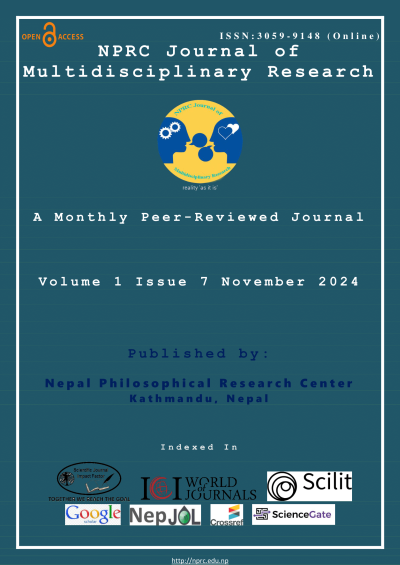Integral Humanism: Theoretical Issues and Challenges for Practice
DOI:
https://doi.org/10.3126/nprcjmr.v1i7.72476Keywords:
Integral Humanism (IH), theoretical analysis, governance, spiritual integration, practical challenges, socio-political applicationAbstract
Integral Humanism (IH), propounded by great Indian philosopher Deendayal Upadhyaya, opposes the materialistic and collectivist policies economically, socially and spiritually. This type of philosophy must be understood as a concept as the enhancement of the value of the person as well as the common good of every social subject. This present paper assess the epistemological perspectives which form the basis of IH and the practical performance difficulties of the outlook in contemporary socio political landscapes. By developing theoretical proposition, it is established that, despite the fact IH encompasses a plurality of options to standard ideologies to the practice of which numerous difficulties arise due to the complications of the contemporary governance, various types of the economies, and cultural diversities. At the end of the study, conclusions followed by recommended solutions and added research directions for minimizing the gap between the theory and practice.
Downloads
Downloads
Published
How to Cite
Issue
Section
License
Copyright (c) 2024 The Author(s)

This work is licensed under a Creative Commons Attribution-NonCommercial 4.0 International License.
This license enables reusers to distribute, remix, adapt, and build upon the material in any medium or format for noncommercial purposes only, and only so long as attribution is given to the creator.





